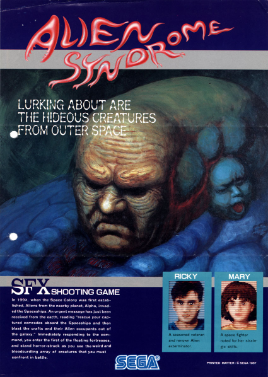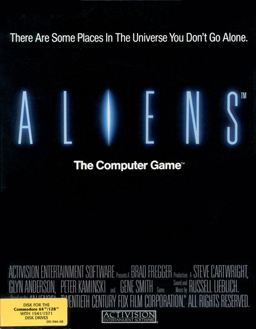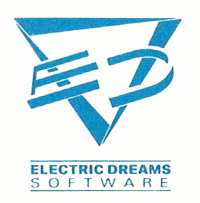
Activision Publishing, Inc. is an American video game publisher based in Santa Monica, California. It serves as the publishing business for its parent company, Activision Blizzard, and consists of several subsidiary studios. Activision is one of the largest third-party video game publishers in the world and was the top United States publisher in 2016.
The video game crash of 1983 was a large-scale recession in the video game industry that occurred from 1983 to 1985, primarily in the United States. The crash was attributed to several factors, including market saturation in the number of video game consoles and available games, many of which were of poor quality. Waning interest in console games in favor of personal computers also played a role. Home video game revenue peaked at around $3.2 billion in 1983, then fell to around $100 million by 1985. The crash abruptly ended what is retrospectively considered the second generation of console video gaming in North America. To a lesser extent, the arcade video game market also weakened as the golden age of arcade video games came to an end.
Andrew Nicholas Oliver and Philip Edward Oliver, together known as the Oliver Twins, are British twin brothers and video game designers.

Alien Syndrome is a run and gun video game developed by Sega and released in arcades in 1987, and later ported to the Master System in 1988. The game utilizes a side-scrolling feature that allows the player to take control of either a male (Ricky) or female (Mary) soldier whilst hunting aliens and saving hostages before they run out of time.

Krome Studios Melbourne, originally Beam Software, was an Australian video game development studio founded in 1980 by Alfred Milgrom and Naomi Besen and based in Melbourne, Australia. Initially formed to produce books and software to be published by Melbourne House, a company they had established in London in 1977, the studio operated independently from 1987 until 1999, when it was acquired by Infogrames, who changed the name to Infogrames Melbourne House Pty Ltd.. In 2006 the studio was sold to Krome Studios.

Commando, released as Senjō no Ōkami in Japan, is a vertically scrolling run and gun video game released by Capcom for arcades in 1985. The game was designed by Tokuro Fujiwara. It was distributed in North America by Data East, and in Europe by several companies including Capcom, Deith Leisure and Sega, S.A. SONIC. Versions were released for various home computers and video game consoles. It is unrelated to the 1985 film of the same name, which was released six months after the game.

Ghostbusters is a licensed game by Activision based on the film of the same name. It was designed by David Crane and released for several home computer platforms in 1984, and later for video game console systems, including the Atari 2600, Master System and Nintendo Entertainment System. The primary target was the Commodore 64 and the programmer for the initial version of the game was Adam Bellin. All versions of the game were released in the USA except for the Amstrad CPC and ZX Spectrum versions, which were released only in Europe, and the MSX version, which was released only in Europe, South America, and Japan.

Tynesoft Computer Software was a software developer and publisher in the 1980s and early 1990s.
Vortex Software was a video game developer founded by Costa Panayi and Paul Canter in the early 1980s to sell the game Cosmos which Panayi had developed for the Sinclair ZX81. They converted the game to the ZX Spectrum, but due to the low sales of the ZX81 version they licensed the game to Abbex.

Spindizzy is an isometric video game released for several 8-bit home computers in 1986 by Electric Dreams Software. It combines action and puzzle video game elements. Players must navigate a series of screens to explore a landscape suspended in a three-dimensional space. Development was headed by Paul Shirley, who drew inspiration from Ultimate Play the Game games that feature an isometric projection.

Aliens: The Computer Game is a 1986 video game developed by Software Studios and published by Electric Dreams Software initially for Amstrad CPC, Commodore 64 and ZX Spectrum. It is based on the film of the same title. Ports for the Commodore 16 and MSX were developed by Mr. Micro and published in 1987.

Aliens: The Computer Game is a 1986 video game developed and published by Activision for the Commodore 64, Apple II based on the film of the same title. As Activision's UK subsidiary Electric Dreams Software had independently released their own version of the game with the same title, the game was renamed for European release. Initially planned to be released as Aliens: The Second Part., it was finally published under the title Aliens: US Version with ports for the Amstrad CPC and ZX Spectrum produced by Mr Micro.
Martech was a video game publisher which operated in Pevensey Bay between 1982 and 1989. It was founded as Martech Games. The company published a number of successful video games for the BBC Model B, ZX Spectrum, ZX81, MSX, Amstrad CPC, Commodore 16, Commodore 64, Atari ST, and Amiga.

Dandy is a dungeon crawl maze video game for Atari 8-bit computers published by the Atari Program Exchange in 1983. It is one of the first video games with four-player, simultaneous cooperative play. Players equipped with bows and unlimited arrows fight through a maze containing monsters, monster spawners, keys, locked doors, food, and bombs in search of the exit leading to the next level. If a player dies, they can be revived by finding and shooting a heart. The game includes an editor for making new dungeons.

Enduro Racer (エンデューロレーサー) is an arcade racing game from Sega. It was released in 1986 with two arcade cabinet versions, a stand-up cabinet with handlebars and a full-sized dirt bike cabinet. It is often seen as a dirt racing version of Hang-On, as it uses a similar engine and PCB. The game was later released for the Master System in 1987, the ZX Spectrum and Commodore 64 in 1988, and the Amstrad CPC and Atari ST in 1989.

Indiana Jones and the Temple of Doom is an action video game developed and published by Atari Games and released in arcades in 1985. It is based on the 1984 film of the same name, the second film in the Indiana Jones franchise. It is the first Atari System 1 arcade game to include digitized speech, including voice clips of Harrison Ford as Indiana Jones and Amrish Puri as Mola Ram, as well as John Williams's music from the film.
Addictive Games was a UK video game publisher in the 1980s and early 1990s. It is best known for the Football Manager series of games created by company founder Kevin Toms. The company was originally based in Milton Keynes, England, and later relocated to Bournemouth, in southern England.
Tiertex Design Studios Limited was a British software development company and former video game developer based in Macclesfield, England; it was founded in 1986, focusing on porting games to home computers and handheld platforms.

Mevlüt Dinç, better known as Mev Dinc, is a Turkish-British video game designer. Born and raised in Turkey, he moved to England in 1979 while finishing his studies, intending to pursue a master's degree there. Unable to pay the high tuition fees for international students, Dinc worked in a cable factory in Southampton, where a colleague introduced him to video games and got him a ZX Spectrum when it was released in 1982. Dinc taught himself to program via magazines and began working in the video game industry in 1983, starting with assisting on the Commodore 64 conversion of Ant Attack, released in 1984. After his first original game, Gerry the Germ Goes Body Poppin', in 1985, he worked with Electric Dreams Software on another original game, Prodigy, the Amstrad CPC port of Enduro Racer, and various tie-ins with films and TV series.













